Table of Contents
The Introduction of JEE main exam:
The Joint Entrance Examination (JEE) Main is a national-level engineering entrance exam conducted by the National Testing Agency (NTA), an autonomous body under the Ministry of Human Resource Development (MHRD), the Government of India.
The exam is a gateway to admissions in undergraduate engineering and architecture courses in some of the best engineering and technical institutes in the country, such as the Indian Institute of Technology (IIT), the National Institute of Technology (NIT), the Indian Institute of Information Technology (IIIT), and the Government-Funded Technical Institutes (GFTIs).
The JEE Main exam is conducted twice a year, in January and April, and is open to students who have passed the 10+2 examination, or its equivalent, from any recognized board or university. The exam consists of two papers – Paper 1 for admission to B.E./B. Tech courses, and Paper 2 for admission to B.Arch/B.Planning courses. Both papers are divided into three sections – Physics, Chemistry, and Mathematics.
The exam is conducted in two modes – online (Computer-Based Test) and offline (Pen-and-Paper-Based Test). The duration of the exam is three hours and the total number of questions is 75. The syllabus for the JEE Main exam includes topics from Physics, Chemistry, and Mathematics as prescribed by the Central Board of Secondary Education (CBSE).
The JEE Main scores are used for admissions to various engineering and technical institutes across the country. The scores are also used to determine eligibility for JEE Advanced, the entrance exam for admission to IITs. Candidates who qualify for JEE Advanced are eligible for admission to any of the 23 IITs in India.
Registration for the JEE Main exam is done online through the official website. The registration process includes online payment of the applicable registration fee.
The exam is conducted in two shifts – Morning (9 am to 12 noon) and Evening (2:30 pm to 5:30 pm). The exam results are declared online on the official website of the NTA. The counseling for the JEE Main exam is conducted by the Central Seat Allocation Board (CSAB).
The Exam overview for JEE main exam:
The Joint Entrance Examination (JEE) Main is an all-India common engineering entrance examination conducted by the National Testing Agency (NTA) for admission to undergraduate engineering courses at 31 National Institutes of Technology (NITs), 25 Indian Institutes of Information Technology (IIITs) and 28 other government-funded technical institutes (GFTIs).
The JEE Main exam consists of two papers- Paper 1 and Paper 2. Paper 1 is for admission to B.E/B. Tech programs and Paper 2 is for admission to B.Arch/B.Planning programs. The two papers are conducted on different days.
Paper 1: Paper 1 of JEE Main is a computer-based test (CBT) of 3 hours duration. It consists of multiple-choice questions (MCQs) and numerical-type questions (Numerical Questions). The paper tests the knowledge of candidates in Physics, Chemistry, and Mathematics.
Paper 2: Paper 2 of JEE Main is also a computer-based test (CBT) of 3 hours duration. It consists of multiple-choice questions (MCQs) and numerical-type questions (Numerical Questions). The paper tests the knowledge of candidates in Aptitude, Drawing, and Mathematics.
Marking Scheme: The marking scheme for both the papers of JEE Main is the same. For each correct answer, the candidate will get 4 marks and for each wrong answer, 1 mark will be deducted from the total score.
Syllabus: The syllabus for both papers is based on the syllabus prescribed by CBSE. It includes topics from Physics, Chemistry, Mathematics, and Aptitude as per the respective papers.
Eligibility: To be eligible for JEE Main, the candidate must have passed class 12 or an equivalent examination with Physics, Chemistry, and Mathematics as main subjects.
The candidate must also have secured at least 75% marks in class 12 or equivalent examination or must be in the top 20 percentile in their respective class 12 board examination.
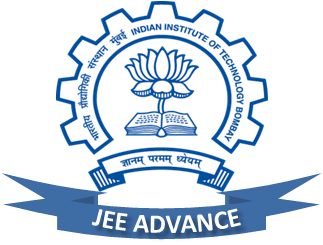
The Eligibility criteria for JEE main exam:
The Joint Entrance Examination (JEE) Main is an all-India engineering entrance exam conducted by the National Testing Agency (NTA) for admission to Engineering and Architecture courses in engineering institutes across India. The exam is conducted twice a year, in January and April, and students can appear for either one or both sessions. Eligibility criteria for JEE Main exam:
1. Age limit: Candidates must have been born on or after October 1, 1995, to be eligible to appear for the JEE Main exam. There is no upper age limit for appearing in JEE Main exam.
2. Qualification: Candidates should have passed their Class 12th board exam or any equivalent exam from any recognized board with a minimum of 75% aggregate marks or be in the top 20 percentile in their respective boards.
3. Number of Attempts: Candidates can attempt the JEE Main exam a maximum of three times.
4. Subjects: Candidates must have studied Physics, Chemistry, and Mathematics as compulsory subjects in their Class 12th board exam or any equivalent exam from any recognized board.
5. Year of Passing: Candidates should have passed their Class 12th board exam or any equivalent exam from any recognized board in the last three years (2018, 2019, 2020).
6. Appearing Candidates: Candidates appearing for their Class 12th board exam or any equivalent exam in 2021 are also eligible to appear for the JEE Main exam.
The Exam pattern for JEE main exam:
The JEE Main Exam is conducted by the National Testing Agency (NTA). It is a national-level entrance exam for admission to undergraduate engineering and architecture courses in the Indian Institutes of Technology (IITs), National Institutes of Technology (NITs), Centrally Funded Technical Institutions (CFTIs), and other reputed engineering institutions. The exam is conducted in two parts:
Paper 1 and Paper 2. Paper 1 is for admission to Bachelor of Technology (B.Tech) and Bachelor of Engineering (B.E.) courses. Paper 2 is for admission to Bachelor of Architecture (B.Arch.) and Bachelor of Planning (B.Planning) courses.
Paper 1: The exam has three sections: Physics, Chemistry, and Mathematics. Each section has questions of different types: Multiple Choice Questions (MCQs), Multiple Select Questions (MSQs), and Numerical Value Questions (NVQs).
The total number of questions is 75, each section carries 25 questions. Each question carries four marks and one mark is deducted for every incorrect answer.
Paper 2:
The exam has three parts:
Mathematics, Aptitude Test, and Drawing Tests. The Mathematics section has 30 questions and the Aptitude Test has 50 questions. The Drawing Test is an optional section and it has two questions. Each question carries four marks and one mark is deducted for every incorrect answer.
The duration of the exam is three hours for both Paper 1 and Paper 2. The exam is conducted in both online and offline modes. Candidates can choose the mode of the exam as per their preference.
The syllabus for the JEE Main Exam is based on the syllabus prescribed by the Central Board of Secondary Education (CBSE). The exam is conducted twice a year, in the months of January and April.
The results of the JEE Main Exam are declared based on the performance of the candidates in the exam.
The Syllabus for JEE main Exams:
The JEE Main exam syllabus is divided into three sections:
Physics, Chemistry, and Mathematics.
PHYSICS:
This section covers topics such as Laws of Motion, Work, Energy and Power, Rotational Motion, Gravitation, Properties of Solids and Liquids, Heat and Thermodynamics, Oscillations and Waves, Electrostatics, Current Electricity, Magnetic Effects of Electric Current, Electromagnetic Induction and Alternating Currents, Optics, Dual Nature of Matter and Radiation, Atoms and Nuclei, Electronic Devices, and Communication Systems.
CHEMISTRY:
This section covers topics such as States of Matter, Atomic Structure, Chemical Bonding, and Molecular Structure, Chemical Thermodynamics and Energetics, Solutions, Chemical Equilibrium, Ionic Equilibrium, Redox Reactions, Electrochemistry, Chemical Kinetics, Surface Chemistry, Nuclear Chemistry, Chemistry of Representative Elements, Transition Elements and Coordination Compounds, General Principles of Organic Chemistry, Hydrocarbons, Organic Compounds Containing Halogens, Alcohols, Phenols and Ethers, Organic Compounds Containing Oxygen, Carboxylic Acids, and their Derivatives, Organic Nitrogen Compounds, Biomolecules, Polymers.
MATHEMATICS:
This section covers topics such as Sets, Relations and Functions, Complex Numbers and Quadratic Equations, Matrices and Determinants, Permutations and Combinations, Mathematical Induction, Binomial Theorem, and Simple Applications, Sequences and Series, Limit, Continuity and Differentiability, Integral Calculus, Differential Equations, Vector Algebra, Three Dimensional Geometry, Statistics and Probability, Trigonometry, and Mathematical Reasoning.
The JEE Main exam syllabus is designed to assess a student’s understanding of the basic concepts and fundamentals of Physics, Chemistry, and Mathematics. The questions are designed to test the reasoning and analytical abilities of the students. It is important to prepare well for this exam as it is one of the most important exams for admission to engineering colleges.
The Exam centers for JEE main exam:
The JEE Main exam is conducted by the National Testing Agency (NTA) in two sessions – January and April. The exam is conducted at various exam centers across the country.
The NTA has notified the exam centers for the JEE Main exam. It is important for the candidates to select the exam center at the time of filling out the application form. The exam center allotted to the candidates is mentioned in the admit card.
The exam centers for JEE Main exam are located in almost all major cities in India. The NTA has established more than 700 exam centers in different parts of the country. The exam centers are located in all the major cities of India like New Delhi, Mumbai, Kolkata, Hyderabad, Chennai, Bengaluru, Lucknow, Bhopal, Jaipur, Patna, Ranchi, Chandigarh, and many other cities.
The NTA also provides the facility of choosing the exam center of your preference. The candidates are allowed to select the exam center at the time of filling out the application form.
However, the final decision is taken by the NTA and the candidates are allotted the exam center according to their preference. In addition to the exam centers in major cities, the NTA has also established some exam centers in small towns and remote areas for the convenience of the candidates.
Candidates from such areas can easily appear for the JEE Main exam without traveling to any major city. The candidates must also keep in mind that the exam centers are subject to change.
The NTA reserves the right to change the exam center without any prior notice. The candidates must keep themselves updated about the exam center and other related information.
The Amit card for JEE main exam:
The Amit Card is an online identity card for candidates appearing for the JEE Main exam. The card is mandatory for all candidates appearing for the exam. It can be obtained from the official website of the National Testing Agency (NTA).
The card contains important details of the candidate like name, date of birth, photograph, signature, category, state of eligibility, etc. It also contains the candidate’s registration number and test center details.
The candidate is required to carry the Amit Card to the exam center along with a valid photo identity proof. The candidate can download the Amit Card by logging into the NTA website using his/her application credentials. Once the card is downloaded, the candidate needs to take a printout of the card.
He/She also needs to affix a passport-size photograph in the designated space on the card. The Amit Card must be kept safe until the end of the exam. The Amit Card is a mandatory document for appearing in the JEE Main exam and is an important identity proof for the NTA.
It helps in verifying the identity of the candidate and ensures that the right candidate is appearing for the exam. It also helps maintain the security of the exam center.
The Results of JEE main exam:
The JEE Main 2021 results were announced on March 24, 2021, by the National Testing Agency (NTA). Over 9.65 lakh candidates had registered for the entrance exam and 8.58 lakh candidates appeared for the exam. The overall pass percentage of the JEE Main 2021 exam was 91.41%.
The performance of candidates in the JEE Main 2021 exam was better than the previous year. The NTA has also released a category-wise performance report for the JEE Main 2021 exam.
The overall pass percentage for general category candidates was 92.71%, while the pass percentage for OBC-NCL candidates was 81.09%.
The pass percentage for SC/ST/PwD candidates was 78.18%. The top 10 rank holders in the JEE Main 2021 exam are
1. Karthikeyan P. – AIR 1
2. Pranav Goyal – AIR 2
3. Bhogendra Sharma – AIR 3
4. Akash G. – AIR 4
5. Himanshu Sharma – AIR 5
6. Kailash Gupta – AIR 6
7. Shubham Saini – AIR 7
8. Arjun Rao – AIR 8
9. Rohan Agarwal – AIR 9
10. Prateek Bhandari – AIR 10
The JEE Main 2021 exam was conducted in four phases from February to May 2021. The NTA also announced a score validation process for the exam.
The score validation process allows candidates to challenge their marks if they feel that their marks are not accurate. Candidates must submit their challenge within the specified time period.
The NTA has also released the cut-off marks for the JEE Main 2021 exam. The cut-off marks are the minimum marks required to qualify for admission to IITs, NITs, IIITs, and other centrally funded technical institutions (CFTIs).
Candidates must secure the required cut-off marks to be eligible for admission. The JEE Main 2021 results are available on the official website of the NTA.
Candidates can check their results by logging in with their application number and date of birth. The NTA has also announced the dates for the JEE Advanced 2021 exam. The exam will be conducted on July 3, 2021.
Candidates who qualify for the JEE Main 2021 exam will be eligible to appear for the JEE Advanced 2021 exam. The JEE Advanced 2021 exam is the second stage of the admission process for IITs. Candidates must secure a good rank in the JEE Advanced 2021 exam to get admission into IITs.
The Preparation tips for JEE main exam:
1. Understand the JEE Main Exam Pattern: The first and foremost step to prepare for JEE Main exam is to understand the exam pattern. Knowing the exam pattern will help you to identify the important topics, the weightage of marks in each section, and the type of questions to be asked.
2. Make a study plan: Make a study plan and stick to it. Allocate time for each subject and start preparing accordingly. Make sure to cover all the topics in the syllabus and practice lots of questions for each topic.
3. Refer to the best study material: Prepare for JEE Main with the best study material available. Use the NCERT books for theory and practice questions from various reference books.
4. Take mock tests: Taking mock tests is the best way to know where you stand. Mock tests help you to identify your strengths and weaknesses.
5. Revise regularly: Regular revision of the entire syllabus is very important. Make notes and revise them regularly.
6. Manage time: Time management is the key to success in JEE Main. Try to solve each question within the given time limit.
7. Stay positive: Stay motivated and work hard to achieve your goals. These are some of the preparation tips for JEE Main exam.
Follow these tips and you will be able to score good marks on the exam. All the best.
Time management for JEE main exam:
Time Management is a key factor for success in the JEE Main exam. Proper time management helps in maintaining a balance between studying and taking breaks, which are both essential for success.
1. Planning: Planning is the key to success in any task. It is important to plan and set a timeline for studying and solving the JEE Main exam. This timeline should include the topics to be covered, the duration for each topic, and the amount of time to be dedicated to solving practice papers.
2. Taking Breaks: Taking regular breaks is essential to maintain focus. It is important to take regular breaks in between studying so that the mind can relax and come back to the task with renewed focus.
3. Set Timers: Setting timers while studying and solving practice papers helps in keeping track of the time spent on each task. This helps in ensuring that the allotted time is used efficiently and the study sessions are productive.
4. Prioritize: It is important to prioritize the topics and questions to be solved. The focus should be on the topics and questions which are more important and need more attention. This helps in avoiding wasting time on topics and questions which are not important.
5. Revise: Revision is important in order to remember the topics and questions which have been studied. It is important to revise the topics and questions which have been studied and solved to ensure that the concepts are clear and the solutions are correct.
By following the above tips, it is possible to manage time effectively while preparing for the JEE Main exam. These tips will help in increasing the productivity of the study sessions and ensure that the allotted time is used efficiently.
The Exam strategy for JEE main exam:
1. Preparation:
The preparation for the JEE Main Exam should begin at least 8-10 months before the exam. During this period, the students should focus on completing the NCERT syllabus and practice problems. They should also refer to study materials from reputed coaching institutes like Resonance, Allen, FIITJEE, etc.
2. Time Management:
It is important for students to manage their time well when preparing for the JEE Main Exam. They should allocate a fixed amount of time for each subject, and ensure that they stick to the plan.
3. Revision:
Revision is essential for students to ensure that they are able to recall all the topics that they have studied. It is important to revise the topics at least thrice before the exam.
4. Mock Tests:
Students should attempt as many mock tests as possible to get an idea of the pattern and type of questions that are asked in the exam. This will help them in getting an idea of the time they need to allocate for each question and improve their accuracy.
5. Last-Minute Tips:
On the day of the exam, the students should make sure that they have all the required documents and materials.
They should also get a good night’s sleep before the exam and have a healthy breakfast. It is also important to reach the exam center well in advance so that they have enough time to relax and focus on the exam.
The Study material for JEE main exam:
The Joint Entrance Examination (JEE) Main Examination is one of the most important examinations for aspiring engineering students. It is a national-level engineering entrance examination conducted by the National Testing Agency (NTA) for admission to undergraduate courses in engineering, architecture, and planning in various institutions across India.
The exam has two papers, Paper 1 and Paper 2. Paper 1 is for admission to B.E/B. Tech courses, while Paper 2 is for admission to B.Arch/B.Planning courses. The study material for JEE Main exam is varied and depends on the student’s background and academic preparation.
For students who are starting their preparation for the exam, it is important to have a strong foundation in Maths, Physics, and Chemistry. This can be achieved through reference books, online sources, and class notes.
Reference Books: A variety of reference books are available for the JEE Main exam, ranging from basic to advanced level books. The best reference books for the exam include the NCERT textbooks for Maths, Physics, and Chemistry, as well as books by renowned authors like D.C. Pandey, Arihant Publications, etc. These books cover all the important topics and provide a good grounding in the basics.
Online Sources: There are a number of online sources that can be used for preparation for the JEE Main exam.
These include websites like IIT JEE, Topper Learning, and Youtube videos related to the topics. These sources provide a good insight into the exam pattern, important topics, and other relevant information.
Class Notes: Class notes are a great way to get an idea about the topics that will be covered in the exam. Students must take notes during their classes and revise them regularly to ensure that they are well-prepared for the exam.
Practice Tests: Practice tests are an essential part of the preparation for the JEE Main exam. They help students understand their strengths and weaknesses and identify the areas they need to focus on.
These are some of the important resources that can be used for the preparation of the JEE Main exam. With enough practice and dedication, students can easily crack the exam and get admission to their dream college.
The Online resources for JEE main exam:
Online resources for JEE main exam are available in abundance. These resources offer a wide range of benefits to students, such as access to study materials, practice tests, video lectures, mock tests, and other material related to JEE main exam.
The most popular online resources for JEE main exam are websites such as JEE Main Online, Toppr, Embibe, Aakash, etc. These websites provide comprehensive study material for JEE main exam preparation. They offer study material for various topics of the exam, such as Physics, Chemistry, Mathematics, and General Aptitude.
The study material includes textbooks, practice questions, solved papers, previous year question papers, etc. These websites also provide video lectures and interactive tutorials to help students understand the concepts better. Online resources also provide practice tests and mock tests.
These tests are designed to help students assess their level of preparation and focus on topics they need to improve on. Online resources also provide important notifications, updates, and information related to the JEE main exam.
In addition to these resources, there are several mobile apps available to help students prepare for the JEE main exam. These apps provide study material, practice tests, and mock tests. They also provide notifications, updates, and information related to the JEE main exam.
Thus, online resources provide students with a comprehensive platform to prepare for the JEE main exam. These resources offer a wide range of benefits to students and help them prepare for the exam in the best possible way.
The Conclusion:
The conclusion for JEE Main exam is that it is one of the most competitive engineering exams in the world. The exam is conducted by the NTA (National Test Agency) and is the gateway to top engineering colleges across the country.
The exam is divided into two parts, Paper I and Paper II. A candidate who clears Paper I is eligible to appear for Paper II. Paper, I consist of three sections: Mathematics, Physics, and Chemistry.
Each section is divided into a total of 30 questions, out of which ten questions are from each section. The total marks for the paper are 360. Paper II consists of three sections: Mathematics, Aptitude, and Drawing. Each section has a total of 30 questions, out of which ten questions are from each section.
The total marks for the paper are 390. The result of JEE Main is based on the total marks obtained by the candidate in both papers. Candidates who qualify are eligible to appear for JEE Advanced, and successful candidates will be eligible to be admitted to the top engineering colleges in India.
Therefore, the conclusion for JEE Main exam is that it is a highly competitive exam and is the gateway to the top engineering colleges in India. The exam requires rigorous preparation and dedication to qualify. Successful candidates will be rewarded with admission to the top engineering colleges.
Also, read Agneepath Yojana







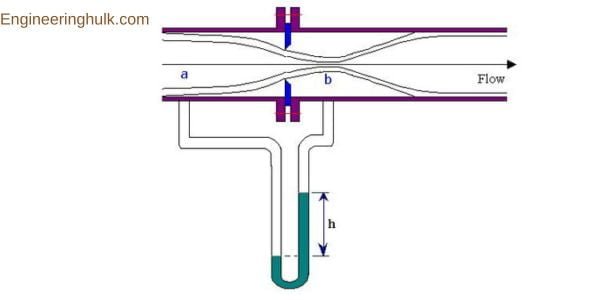

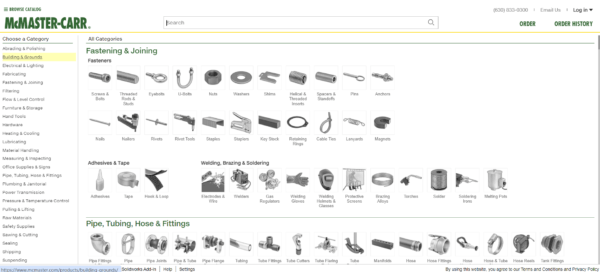




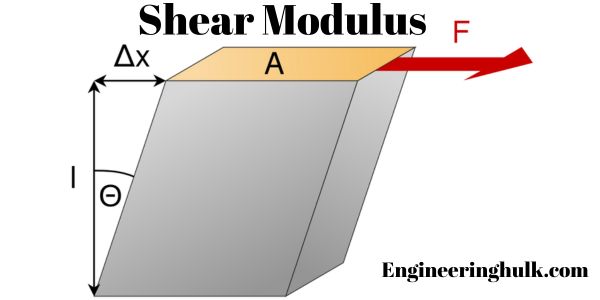

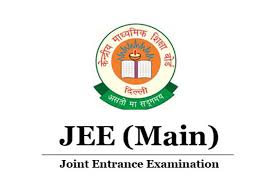














Comment on “JEE main exam 2023 – Detailed overview”
Comments are closed.